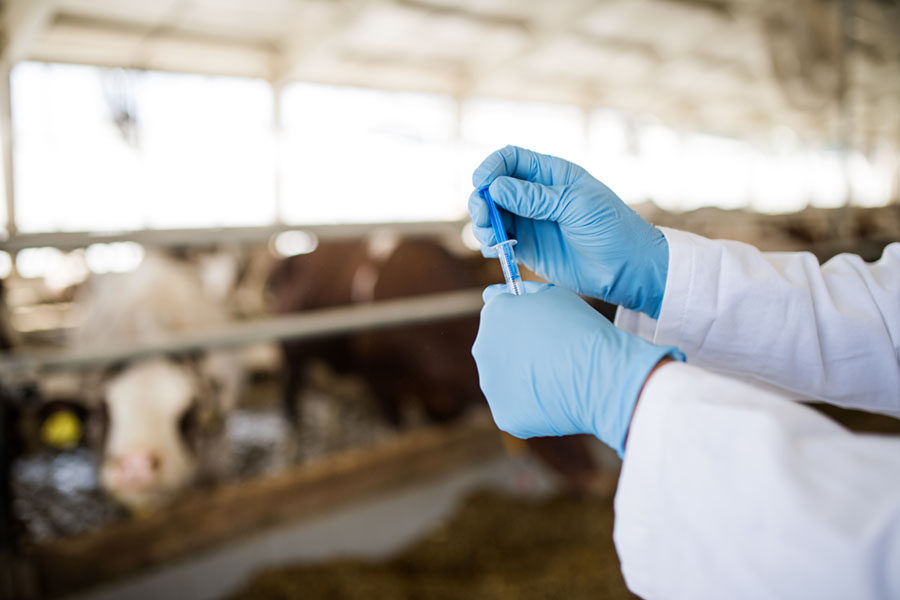
Are there Benefits to Genetically Modified Animals?
The Benefits of Genetically Modified Animals Are Only for Corporations. Science May Have Gone Too Far With Genetic Tampering, but the FDA is Mute.
The benefits of genetically modified animals are questionable. However, the agribusiness industry and its lobbyists have made substantial inroads.
Corporate leaders have worked hard and spent millions to convince the government and the public that the benefits of genetically modified animals outweigh the risks.
Increased production and availability of food and lower cost for dairy and meat products are among the benefits claimed by agribusiness.
Farm animals are being fed hormones, antibiotics and genetically modified feed corn and grasses.
The substances fed to the animals may have an effect on the animals, and later, people. Antibiotics fed to animals are passed along to people and are thought to be contributing to the rise of antibiotic resistant bacteria.
Hormones are thought to contribute to earlier onset of puberty, particularly in girls, as well as an increase in hormone related cancers, including breast cancer.
When DNA is rearranged, it can spawn any number of mutations and promoters meant to turn on modified genes and can turn on other genes along the DNA strand, causing any number of mutations, changes or negative consequences.
Despite the evidence to the contrary, large corporations continue to insist on the safety of genetic modification used in farm animals.
The Effect of Hormones on Our Children
Synthetic hormones are being fed to dairy cows with the promise of increased milk production. However, the effect it is having on our kids is not worth the dubious benefits of genetically modified foods.
The bovine growth hormone fed to the dairy cows acts like estrogen in the human body in order to stimulate milk production. In our sons, this hormone is interfering with the normal puberty process and even delaying it.
Our daughters are experiencing the opposite problem; they are starting puberty earlier. Doctors have reported girls as young as seven in puberty, due to the hormones in milk and meat.
This is also believed to contribute to an increase in female cancers, specifically breast cancer.
Ironically, all this additional milk may not even be needed. In many areas of the country, there is a milk surplus, resulting from the steady increase in supply that has resulted from hormone use.
The Effect of Genetic Modification on Animals
Animals are affected by genetic modification in two ways–by being fed hormones and antibiotics to provide the benefits of genetically modified animals and through genetic modifications to food used as animal feed.
Hormones fed to cows to increase milk production causes mastitis, a painful infection of the mammary gland that many breastfeeding mothers will attest is quite painful and causes flu like illness.
The infection or pus from the udder can enter the milk in cases of extreme infection and causes a high bacteria count in the milk.
Animals are also affected through genetically modified feed corn and field grasses. The GMO in the feed causes negative affects and changes in the animals, which are then consumed by people.
The lack of testing and oversight has led some farmers to become scientists and investigate the safety of some of this technology. Pig farmer Jerry Roseman has been experimenting with cows on his farm.
When his cows were fed genetically modified feed corn, they stopped reproducing and became infertile, both the cows and the bull. When the GMO corn was removed from the diet, fertility returned within 90 days.
Upon reintroducing the corn into the diet, the cows again showed signs of infertility.
Who Reaps the Benefits of Genetically Modified Foods?
Agribusiness and large commercial farms benefit the most from manipulating our food supply. Large dairy farms are able to produce a lot more milk when bovine growth hormone is fed to the cows.
Companies such as Monsanto, that have purchased the patent to not only hundreds of varieties of seeds, but half the varieties of farm animals in the country, including their offspring, have a lot to gain from the continued modification of our farm animals.
The corporations, their wealthy lawyers and skilled lobbyists have sold the public a terrible lie in extolling beneficial elements of modifying farm animals and ignored warnings and negative outcomes, even hiding them from citizens and government officials.
The benefits of genetically modified animals are clearly outweighed by the risk.

 My First Amazing Ayahuasca Experience
My First Amazing Ayahuasca Experience  Pine Needle Tea
Pine Needle Tea  The REAL Controllers of Humanity: The Papal Bloodlines
The REAL Controllers of Humanity: The Papal Bloodlines  Is it Global Warming or Cooling?
Is it Global Warming or Cooling?  Gun Rights and Obama Examined
Gun Rights and Obama Examined